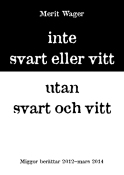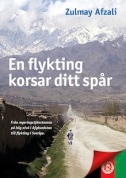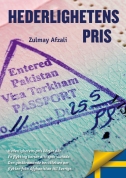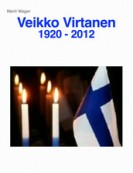 Klicka på bildrutan för att komma till intervjun på HS:s sajt (på engelska).
Klicka på bildrutan för att komma till intervjun på HS:s sajt (på engelska).
Överdirektör (i Sverige generaldirektör) Jaana Vuorio, Migrationsverket – Migri – intervjuas i det här videoklippet från Newsmakers (utlagt på Helsingin Sanomats videokanal) på engelska om asylsituationen i Finland. Större delen av den 18 minuter långa intervjun har nedtecknats med tanke på att man inte vet hur länge videoklipp ligger kvar och det som sägs här kan vara intressant att ta del av också om några år eller ännu längre fram, när länken kanske inte längre fungerar. Det mesta är nedtecknat på engelska men en del är översatt till svenska.
David Mac Dougall: Norway has radically revised their estimate downwards, of the number go people who will come to claim asylum, to a 19 year low. What’s the situation going to be like in Finland this year and what’s it going to be? How many people did you think would come and what’s the reality?
Jaana Vuorio: Our estimate was 10.000 for the entire year of 2016. It seems that we don’t go that much up so now the estimate is around 6000, 7000 at the most.
David Mac Dougall: Comparing it to last year – we had more than 32.000 last year if I remember correctly.
Jaana Vuorio: Yes, in Finland actually, in the European and Nordic context, our asylum seeker figure has been exceptionally stable. It has varied between 3.000 and 4.000 annually and then, all of a sudden last year, we git nearly ten times more applicants.
Intervjuaren säger att det var uppenbart varför det kom så många asylsökande förra året men undrar:
David Mac Dougall: So why has it dropped off so much this year, what are some of the reasons behind fewer asylum seekers?
Jaana Vuorio: Of course there are many reasons for that but the main reason, compare to last year, are the border controls that have been put in place and also the movement from Turkey to Greece, the numbers have gone down, as we all know.
David Mac Dougall: Do you think ut plays into it that Finland is not granting so many asylum applications; not granting so many asylum requests? Do people realize that its not such an easy country to come to and claim asylum?
Jaana Vuorio: Probably that is one of the reasons, as well as… actually the asylum criteria remains the same but we used to have a national category of ”humanitarian protection” and that was taken away from the immigration law in May this year.
David Mac Dougall: Who did that affect the most, when it was taken away from the law?
Jaana Vuorio: Actually applicants from countries like Irak, Afghanistan and Somalia. Earlier applicants from those countries, they – or most of them – qualified for the category of ”humanitarian protection”.
David Mac Dougall: We’ve seen some of the worst fighting with ISIS in Irak, so somebody fleeing ISIS wouldn’t automatically get their asylum application approved in Finland anymore?
Jaana Vuorio: Of course we look at the situation all the time as it is at the moment and now we know that the situation in Mosul has really deteriorated so the fact that a person comes from Mosul… if he returns there he would face serious harm for his security. But then of course for Iraqis we have to consider whether the person could return safely to some other part of the country. Läs mer
Filed under: Allmänt, Asyl&Migration, Finland, Finland, finlandssvenskt, finskt, Samhälle | Tagged: Afghanistan, asylsituationen, asylum applications, asylum seekers, Österrike, David Mac Dougall, EU, Finland, Greece, Helsingin Sanomat, Irak, Jaana Vuorio, Migrationsverket, Migri, minderåriga, minors, mottagningscenter, Newsmakers, Somalia, Sverige, Sweden, Syria, Turkey, Tyskland | Kommentarer inaktiverade för Finland. Migris överdirektör Jaana Vuorio i lång intervju med Newsmakers på Helsingin Sanomats sajt.













 Under tiden 14 juni – 14 september 2014 skrev jag på sajten medium.com 17 artiklar på engelska under samlingsrubriken
Under tiden 14 juni – 14 september 2014 skrev jag på sajten medium.com 17 artiklar på engelska under samlingsrubriken 


